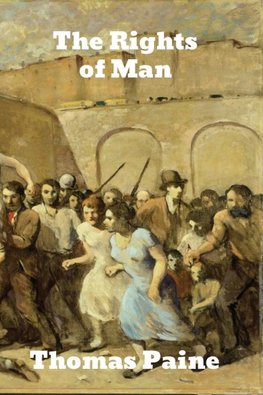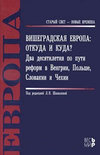
-
 Anglický jazyk
Anglický jazyk
The Rights of Man
Autor: Thomas Paine
The Rights of Man (1791), a book by Thomas Paine, including 31 articles, posits that popular political revolution is permissible when a government does not safeguard the natural rights of its people. Using these points as a base it defends the French Revolution... Viac o knihe
Na objednávku, dodanie 2-4 týždne
18.27 €
bežná cena: 20.30 €
O knihe
The Rights of Man (1791), a book by Thomas Paine, including 31 articles, posits that popular political revolution is permissible when a government does not safeguard the natural rights of its people. Using these points as a base it defends the French Revolution against Edmund Burke's attack in Reflections on the Revolution in France (1790). Paine was a very strong supporter of the French Revolution that began in 1789; he visited France the following year.
Many English thinkers supported it, including Richard Price, who initiated the Revolution Controversy with his sermon and pamphlet drawing favourable parallels between the Glorious Revolution of 1688 and the French Revolution. Conservative intellectual Edmund Burke responded with a counter-revolutionary attack entitled Reflections on the Revolution in France (1790), which strongly appealed to the landed class and sold 30,000 copies.[3] Paine's Rights of Man was printed by Joseph Johnson for publication on 21 February 1791, then withdrawn for fear of prosecution. J. S. Jordan stepped in and published it on 16 March. The 90,000-word book appeared on 13 March, three weeks later than scheduled. It sold as many as one million copies and was "eagerly read by reformers, Protestant dissenters, democrats, London craftsman, and the skilled factory-hands of the new industrial north" Paine argues that the interests of the monarch and his people are united, and insists that the French Revolution should be understood as one which attacks the despotic principles of the French monarchy, not the king himself, and he takes the Bastille, the main prison in Paris, to symbolise the despotism that had been overthrown. Human rights originate in Nature, thus, rights cannot be granted via political charter, because that implies that rights are legally revocable, hence, would be privileges: It is a perversion of terms to say that a charter gives rights. It operates by a contrary effect-that of taking rights away. Rights are inherently in all the inhabitants; but charters, by annulling those rights, in the majority, leave the right, by exclusion, in the hands of a few ... They ... consequently are instruments of injustice ... The fact, therefore, must be that the individuals, themselves, each, in his own personal and sovereign right, entered into a contract with each other to produce a government: and this is the only mode in which governments have a right to arise, and the only principle on which they have a right to exist. Government's sole purpose is safeguarding the individual and his/her inherent, inalienable rights; each societal institution that does not benefit the nation is illegitimate-especially monarchy and aristocracy. The book's acumen derives from the Age of Enlightenment, especially from the Second Treatise of Government, by John Locke. The fuller development of this position seems to have been worked out one night in France after an evening spent with Thomas Jefferson, and possibly Lafayette, discussing a pamphlet by the Philadelphia conservative James Wilson on the proposed federal constitution
- Vydavateľstvo: Binker North
- Rok vydania: 1791
- Formát: Paperback
- Rozmer: 229 x 152 mm
- Jazyk: Anglický jazyk
- ISBN: 9781774416754







 Nemecký jazyk
Nemecký jazyk 
 Ruský jazyk
Ruský jazyk 



